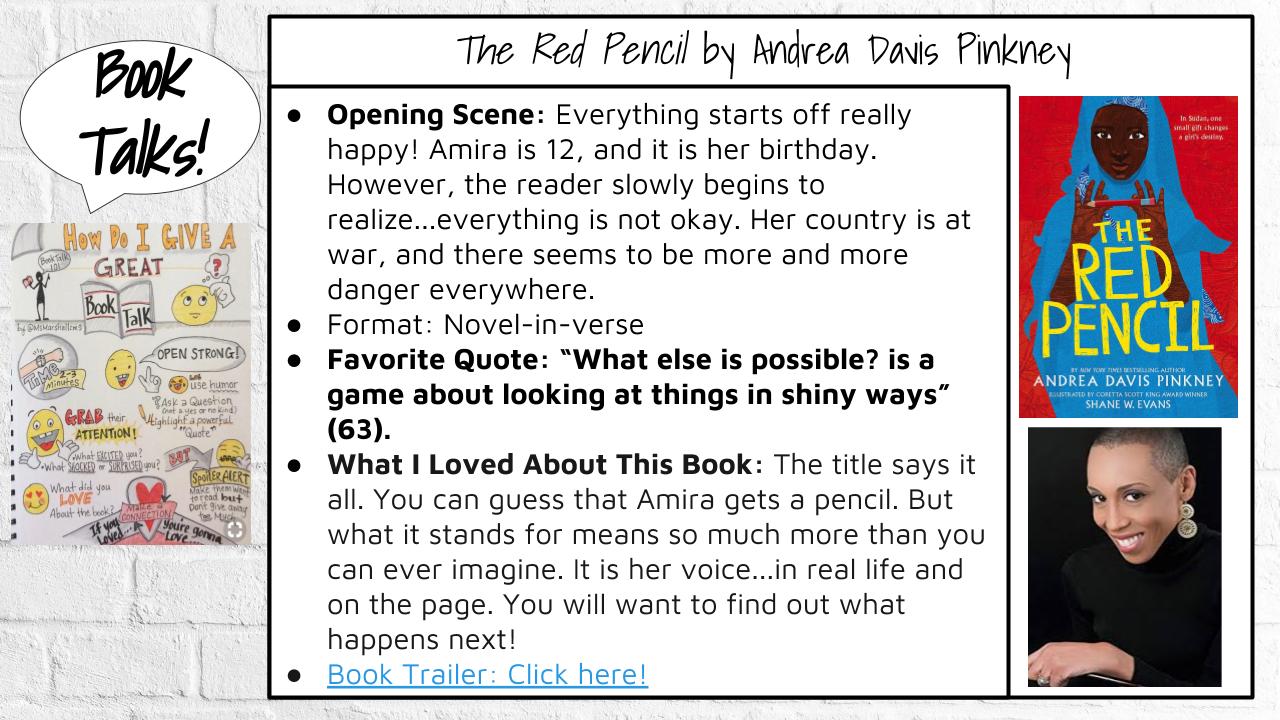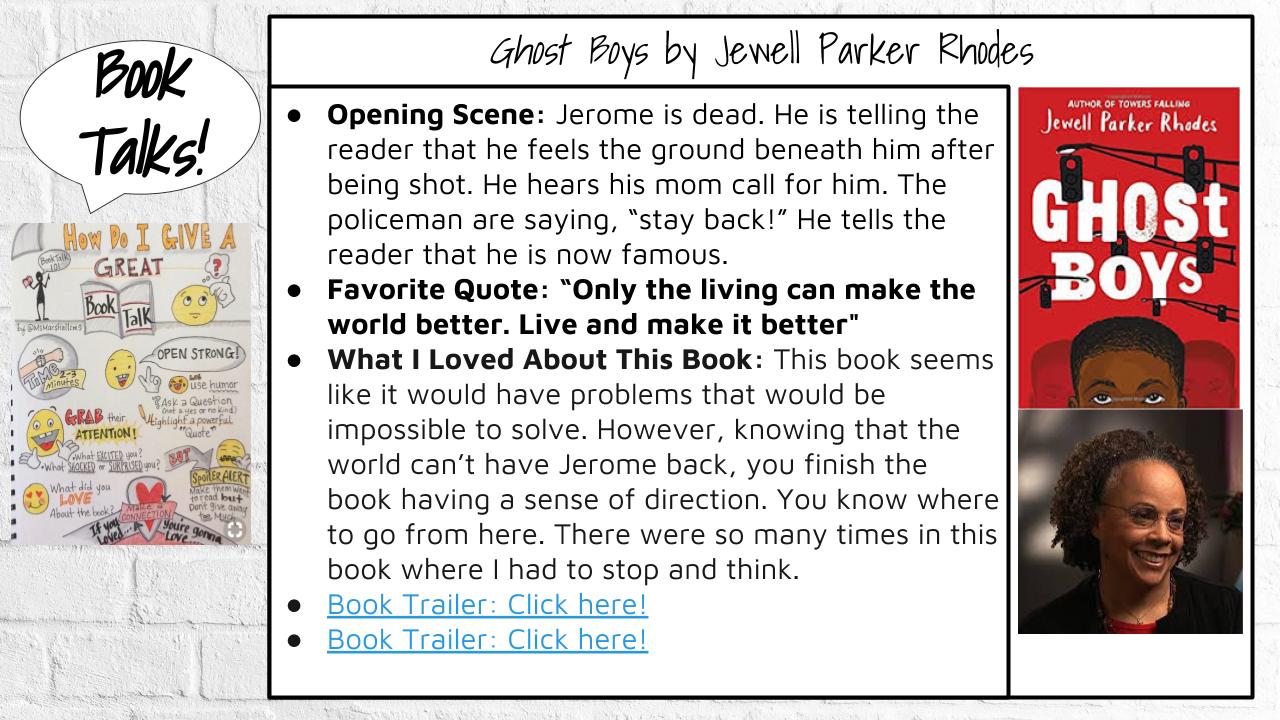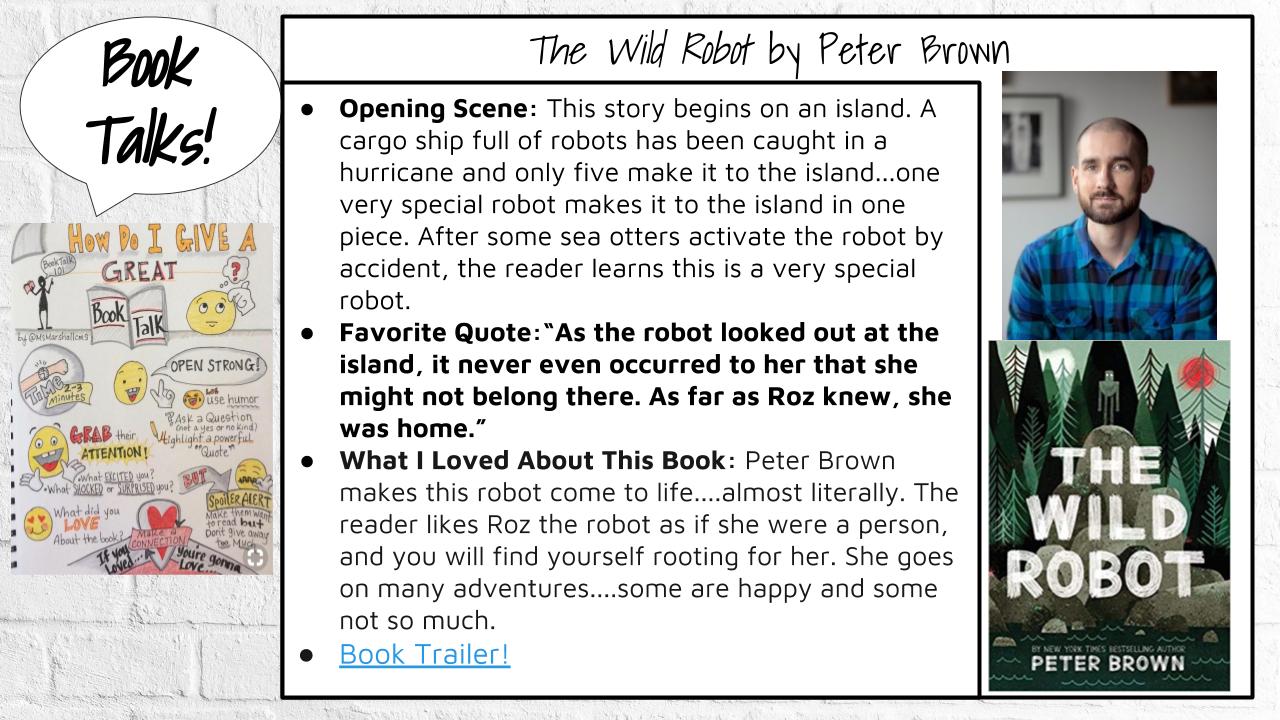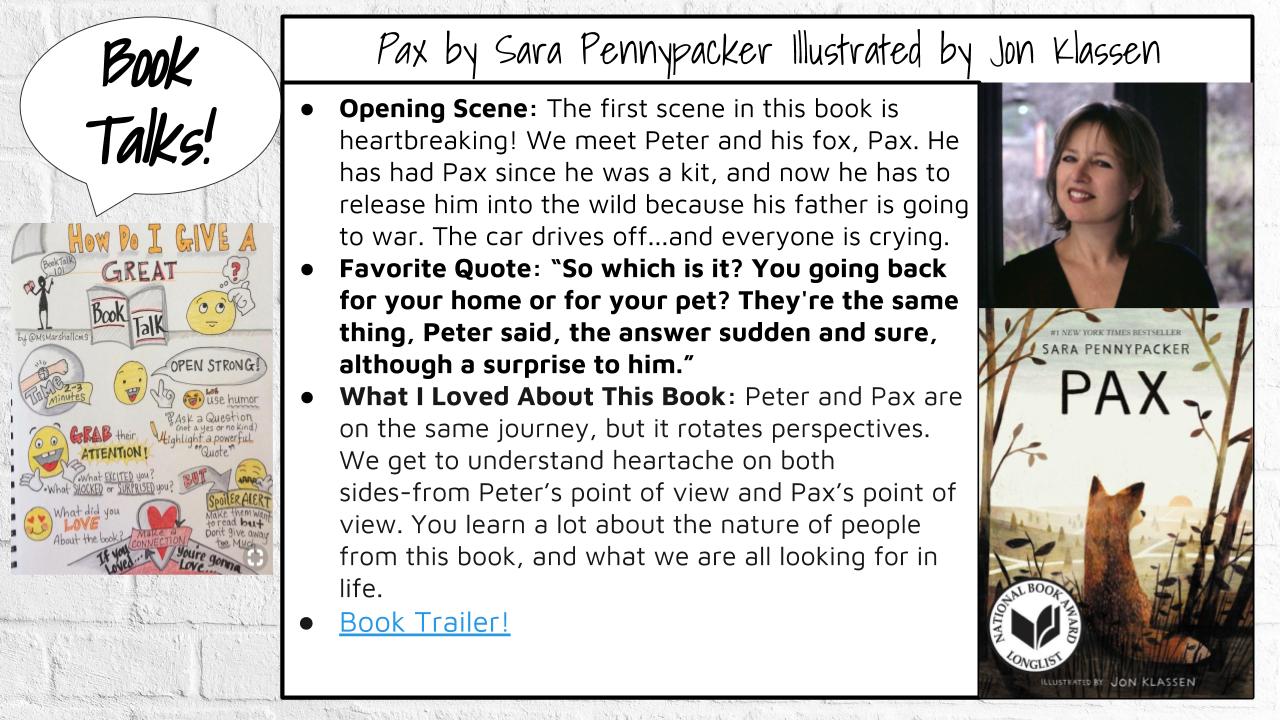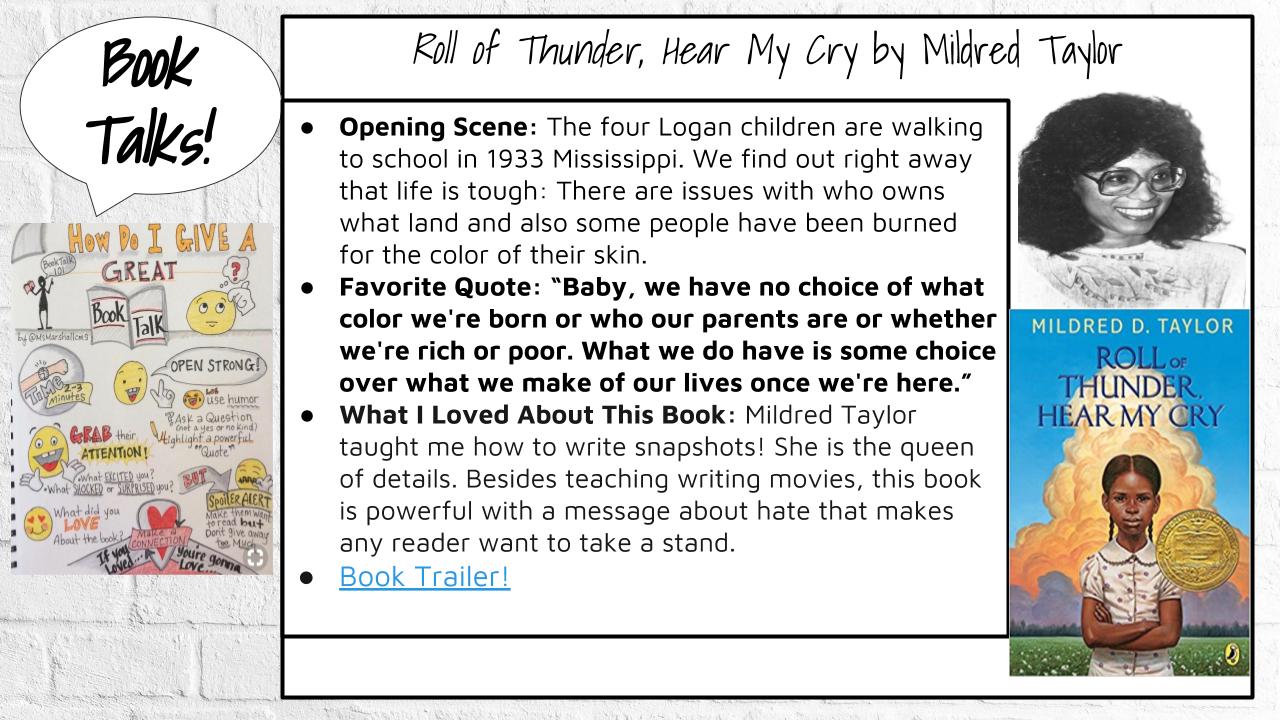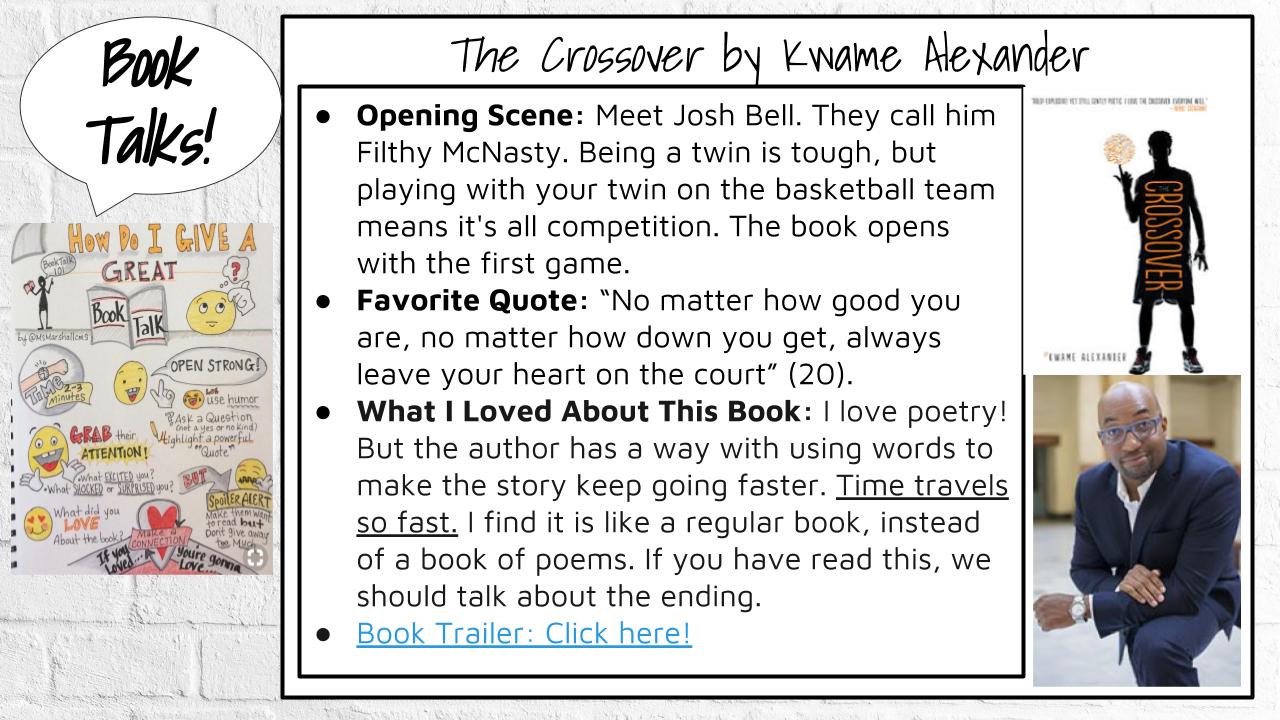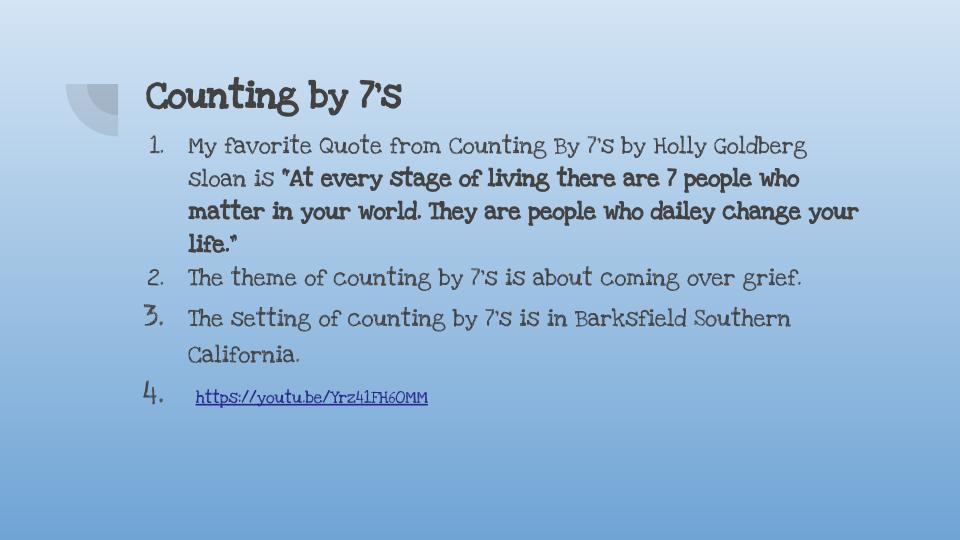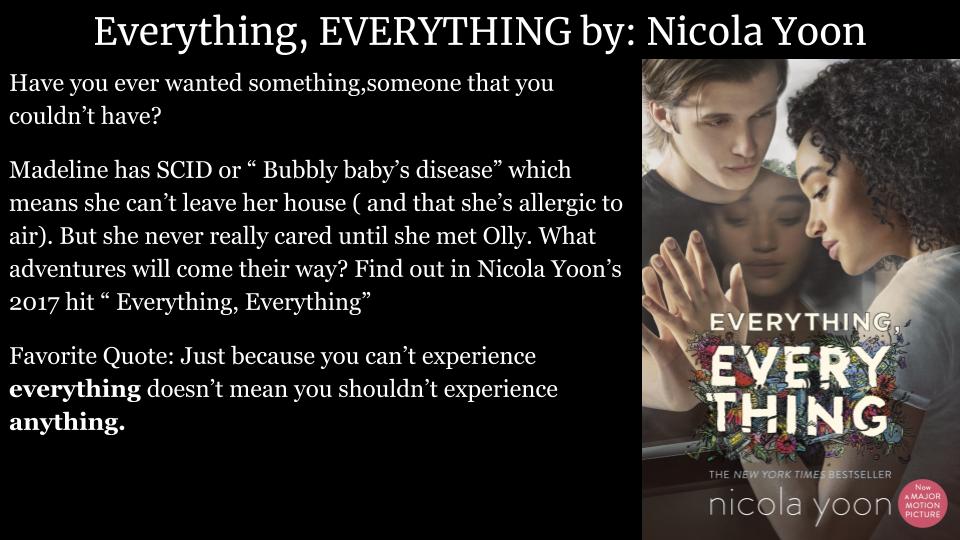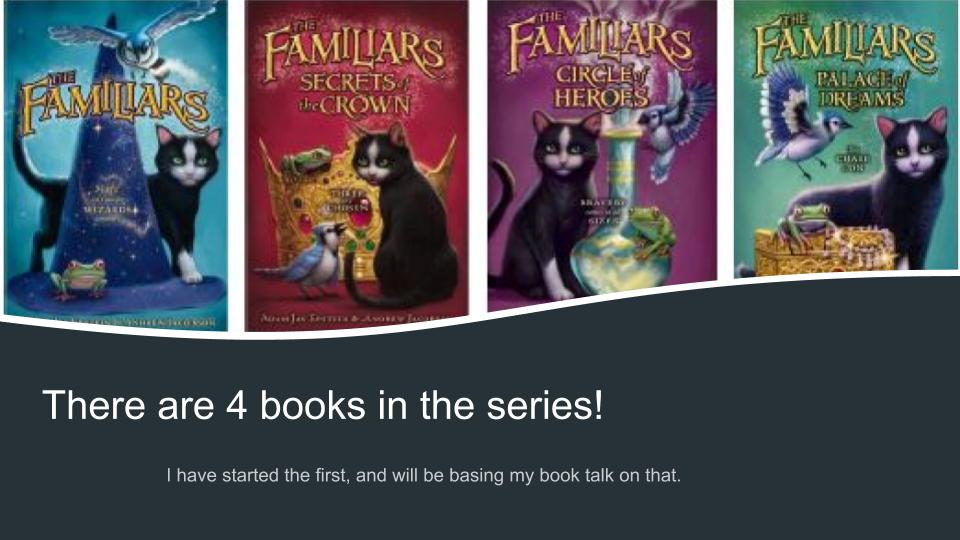It All Starts With The Book Talk!
Excited Readers = Excited Writers
Reading and writing are all too often cyclical. Everyone knows good reading fuels good writing and vice versa. As a middle school teacher, I really wish that I was able to teach reading and writing separately or even give them their own block of time, but I do also love the impossible harmony that is being a reading AND writing teacher. This post will explain how I start my week with students, and how I often will start each class. I always start each hour the first day of the week with a book talk about a middle grade or young adult novel or nonfiction book. It kicks off my mentor text work with kids, and it gets them excited about a book they may or may not have heard about before. This post goes into detail to explain why the simple act of talking about books in a way that makes kids want to read them is one of the most important things we can do as teachers each day.
Why Book Talks? What Are They?
We Are Teachers gives a great overview of the book talk process. Also, here is a great post from Pernille Ripp on book talks. Simply, book talks are short glimpses into what the book is about and why you should be reading it. I have seen lots of great book talks, and I have seen lots of book talks that lack the energy to get the audience involved. The goal of a book talk is always to have the enthusiasm to make the book contagious. Same with teaching, I need to be excited about what I am doing, so they get excited, too. As a book lover and reader myself, the goal for my teaching is to share this positive book relationship with my students as often as possible. Here are Colby Sharp and Donalyn Miller talking about book talks:
When I started my mentor text work during the 2018-2019 school year, I started with Ghost by Jason Reynolds. I happened to have 35 copies of it on hand, and those copies were gone after my third hour of doing the book talk. Kids were immediately hooked by the description of the beginning of the story and the mini-book trailer I played in the room that made it seem like a movie. My other two hours were pretty disappointed they had to sign up for a waitlist. This disappointment was a sure sign of a successful book talk, although, Jason Reynolds makes it easy by writing amazing books. We as teachers of writing must show our love for reading. In a dreamland, I would have endless supplies and copies of books on hand in order to hand them out to my students when they were interested. One of the benefits of online learning in the fall of 2020 is that we can recommend books that are available immediately online through sites like Get Epic or public library lending systems. So, when I was book talking Missing Mike by Shari Green today in class, I was able to say to everyone, “This book is available now on Get Epic if you want to read it along with me this week.” This invitation to reading was a powerful statement. Chad Everett, administrator and literacy coach stated at the Michigan Reading Association conference in 2019, “If you ain’t book talkin’, what are you doing?” It begs the question that if English and literacy teachers aren’t talking about choice reading in a way that invokes passion and curiosity, we can really ask…what are we doing?
How I Do a Book Talk
Step 1: Read the book and get excited to share it with other people.
Step 2: Use an attention grabber or hook to capture your audience’s attention. I like to start with the opening scene or the first line.
Step 3: Keep their attention using the highlights of the book or the favorite quotation from the book. I love the favorite quote because it reinforces that I am annotating and marking what I think it is important about a text.
Step 4: Explain why you loved the book. This really matters because this is the biggest part of the book talk where you can show enthusiasm for the book. I often am hugging the books I am talking about at this point.
Step 5: Show a book trailer. Kids ask me each week if I have a book trailer, and I always have something digital to show students that lasts about 2-3 minutes. Even if it is a non-fiction clip with information about the text. Seeing is believing.
Some Of My Book Talks
Student Project: Student Book Talks
It is important to get student voices in the room as well. If you clicked on the video clip with Colby and Donalyn, they make a great point that “The best person to recommend a fifth-grader a book is another fifth-grader.” There are so many books out there! When we start looking at our students as experts of books as well, they build their own confidence when becoming book recommendation specialists to their peers and other teachers. This is the definition of a community of readers. Here are just a couple of the book talks my sixth graders completed in years past:
Student Activity: Reading Responses on Flipgrid
I started the 2020 school year by immediately talking about where to find books and get book access. Students are recording videos (hidden from everyone else) each week that have them simply recording a 30 second-1 minute video where they are talking about the books they are reading. This is not a reading log or a report. I just want them to get into the habit of talking about books. This also kicks off the tradition of them talking about books with others when that isn’t necessarily something that happens often. I give them some sentence starters when they get stuck, and I am also giving them time in our small group breakout sessions to ask for book recommendations if needed.

